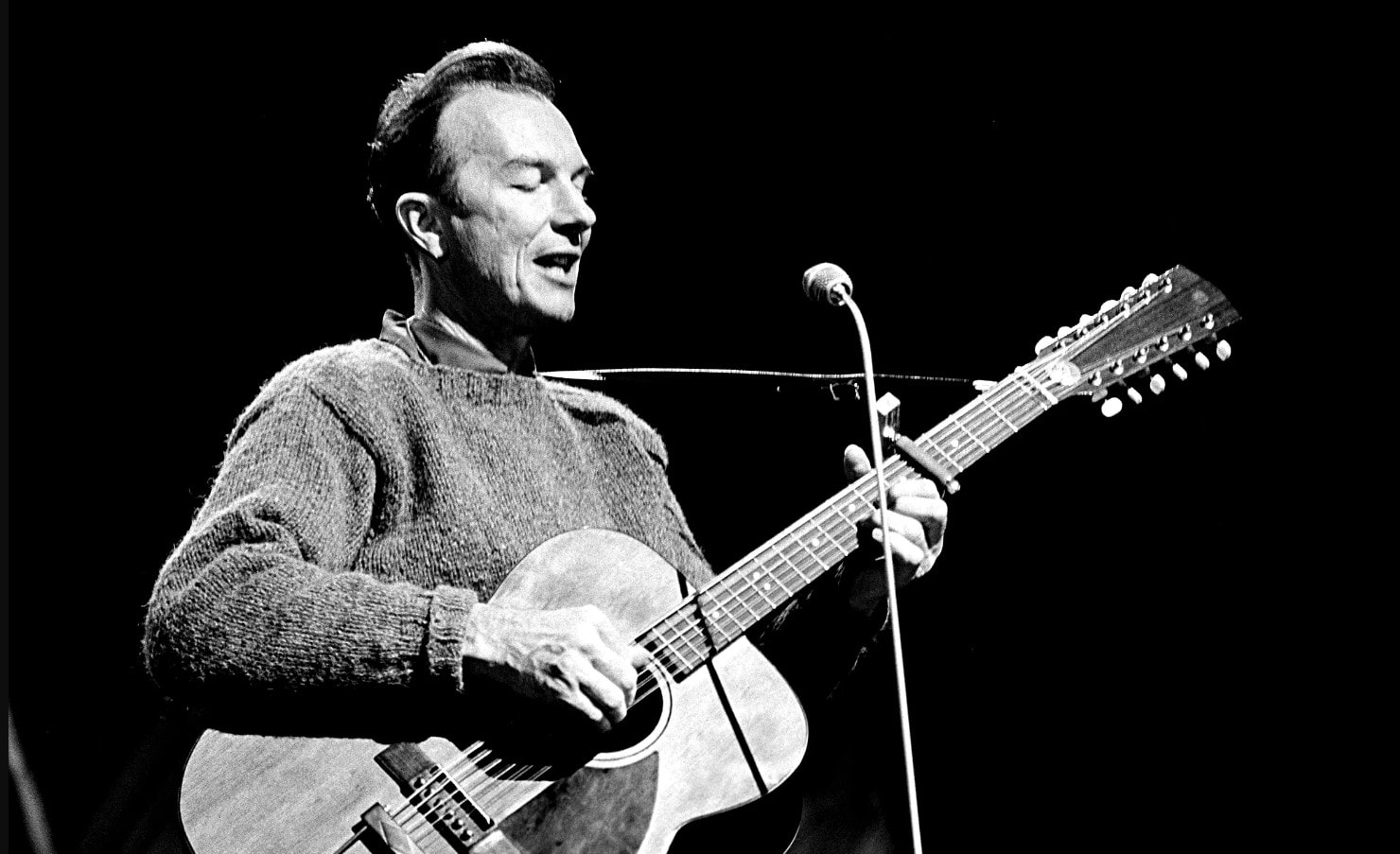
About the song
Pete Seeger’s rendition of “We Shall Overcome” during his 1967 performance in Berlin, East Germany (then known as the German Democratic Republic), stands as a profound moment in the history of folk music and civil rights advocacy. Seeger, a luminary in American folk music, used his platform to amplify the voices of the oppressed and to promote a message of unity and resilience.
“We Shall Overcome” is a song with deep roots in the American civil rights movement, evolving from African American spirituals and labor movement hymns. The song became an anthem of hope and defiance during the 1960s, encapsulating the struggle for equality and justice. Pete Seeger, along with other folk artists, played a pivotal role in popularizing the song, transforming it into a global symbol of resistance and solidarity.
In 1963, Seeger included “We Shall Overcome” in his album *We Shall Overcome*, recorded live at Carnegie Hall. The album itself did not dominate the charts but earned its place in history for capturing the spirit of the civil rights movement. The song, in particular, resonated with many, becoming an emblem of nonviolent protest and unyielding hope.
Seeger’s 1967 performance in Berlin was particularly significant given the political climate of the time. The Cold War era was marked by tension between the Eastern and Western blocs, and Seeger’s presence in East Germany symbolized a bridge of understanding and shared human aspirations. His rendition of “We Shall Overcome” in this setting highlighted the universal appeal of the song’s message – that freedom and justice are aspirations shared across borders and ideologies.
Pete Seeger’s performance was characterized by his trademark clarity and passion. Accompanying himself on the banjo, he encouraged audience participation, transforming a solo performance into a collective experience. This participatory approach was central to Seeger’s style, as he believed deeply in the power of communal singing to foster solidarity and inspire action.
“We Shall Overcome” itself is a simple yet powerful song. Its repetitive structure and uplifting melody make it accessible, allowing its profound message to reach a wide audience. The lyrics, promising that “we shall overcome someday,” serve as a testament to the enduring human spirit and the belief that justice will ultimately prevail.
For an older and educated audience, Seeger’s Berlin performance is a poignant reminder of the power of music to transcend barriers and to advocate for social change. It reflects Seeger’s lifelong commitment to using his musical talents to support causes of peace, equality, and justice. His ability to connect with audiences and to instill a sense of shared purpose remains a significant aspect of his legacy.
In essence, Pete Seeger’s 1967 rendition of “We Shall Overcome” in Berlin is more than just a musical performance; it is a historical moment that underscores the role of music in the global struggle for human rights and dignity. Seeger’s unwavering dedication to these ideals continues to inspire and resonate with audiences around the world.
Video
Lyrics
We shall overcome
We shall overcome
We shall overcome, some day.
Oh, deep in my heart
I do believe
We shall overcome, some day.
We shall live in peace
We shall live in peace
We shall live in peace, some day.
Oh, deep in my heart
I do believe
We shall overcome, some day.
The day will soon be here
The day will soon be here
The day will soon be here, I know.
Oh, deep in my heart
I do believe
We shall overcome, some day.
We shall overcome
We shall overcome
We shall overcome, some day.
Oh, deep in my heart
I do believe
We shall overcome, some day…